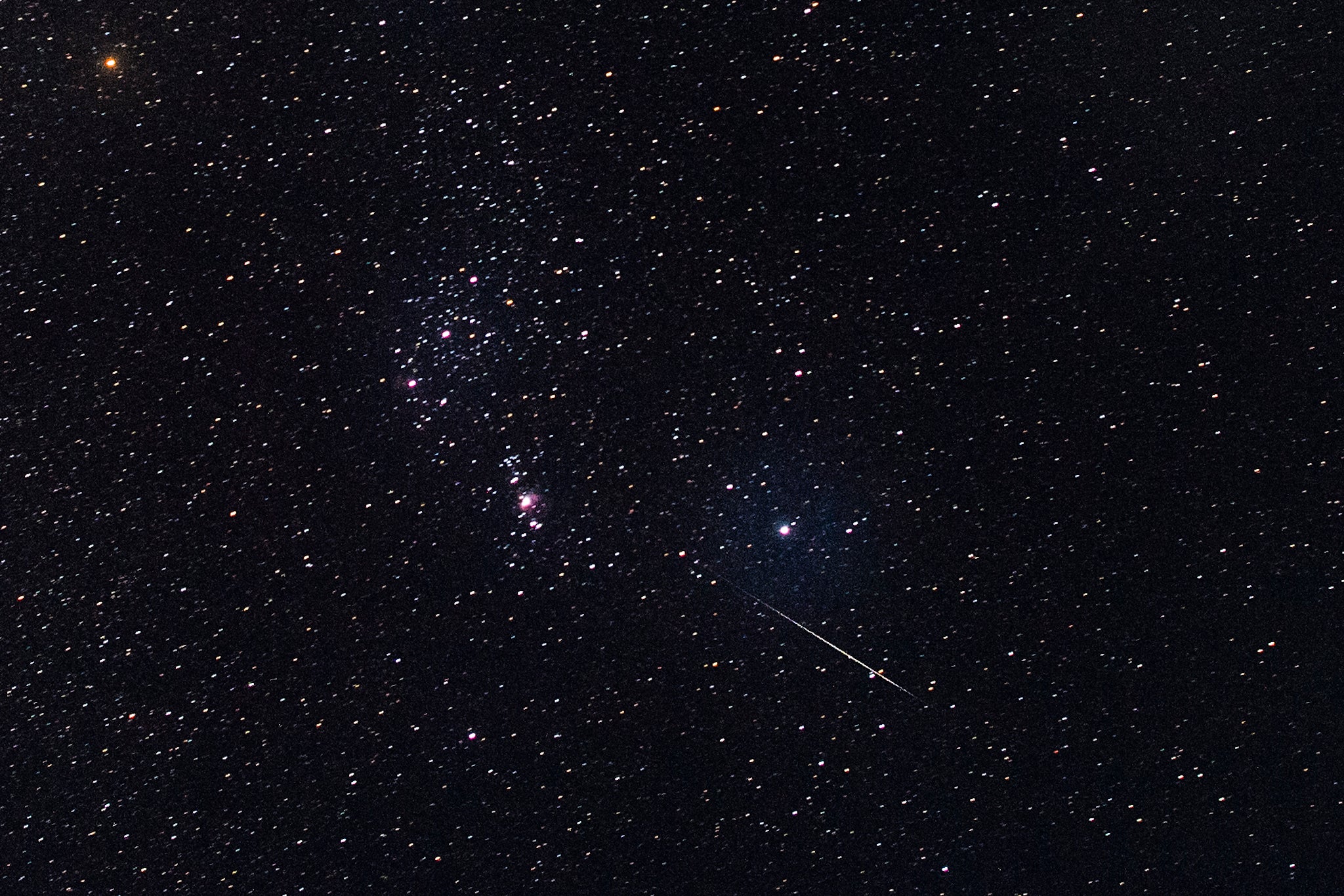Geminid metor shower: How to see shooting stars in the sky tonight

The world is about to be treated to a stunning celestial display as the shooting stars of the Geminid meteor shower light up the sky.
The annual meteor shower will peak overnight on Monday, though could be visible the days before and after.
And it is unusual, not only in that it is easily visible with the naked eye – if the conditions are right – but that those shooting stars are not just bright but multi-coloured.
While the lights are mostly white, others are yellow, green, red and blue. That is a result of the metals that are included in the debris that makes up the shower.
The meteor showers actually made up of pieces of the asteroid 3200 Phaethon. As such, it is unusual for another reason: most major meteor showers are made up of pieces of comet, not asteroid.
When those pieces of debris collide with Earth’s atmosphere, they heat up and project light. Those metals change the colour – in the same way as they do in a firework.
Here’s everything you need to know about the Geminids meteor shower as it arrives.
When does the meteor shower arrive?
The Geminids peak overnight on Monday, 13 December. While they might be visible around that time, that’s definitely the best.
As ever, they’ll be more visible the darker the night sky is. So the best time to see them is after the sun has set, and when light pollution is at its lowest.
How to see it?
The meteor shower is bright and fast, meaning that it should be easy to see. You need no special equipment or detailed knowledge of the heavens.
(In fact, a telescope or binoculars can just make it more difficult, since you can see less of the sky. And you don’t actually want to look at the point where the meteor shower is coming from – known as the radiant – since that can once again mean seeing fewer meteors.)
Instead, just look up into a dark patch of sky. You might not see anything immediately, but as your eyes adjust to the darkness then some meteor showers will hopefully become visible.
In the UK, however, the view could be ruined by cloud cover. The Met Office’s forecast shows bad conditions for skywatching all through the night on Monday for much of the country.
Subscribe to Independent Premium to bookmark this article
Want to bookmark your favourite articles and stories to read or reference later? Start your Independent Premium subscription today.

Join our commenting forum
Join thought-provoking conversations, follow other Independent readers and see their replies